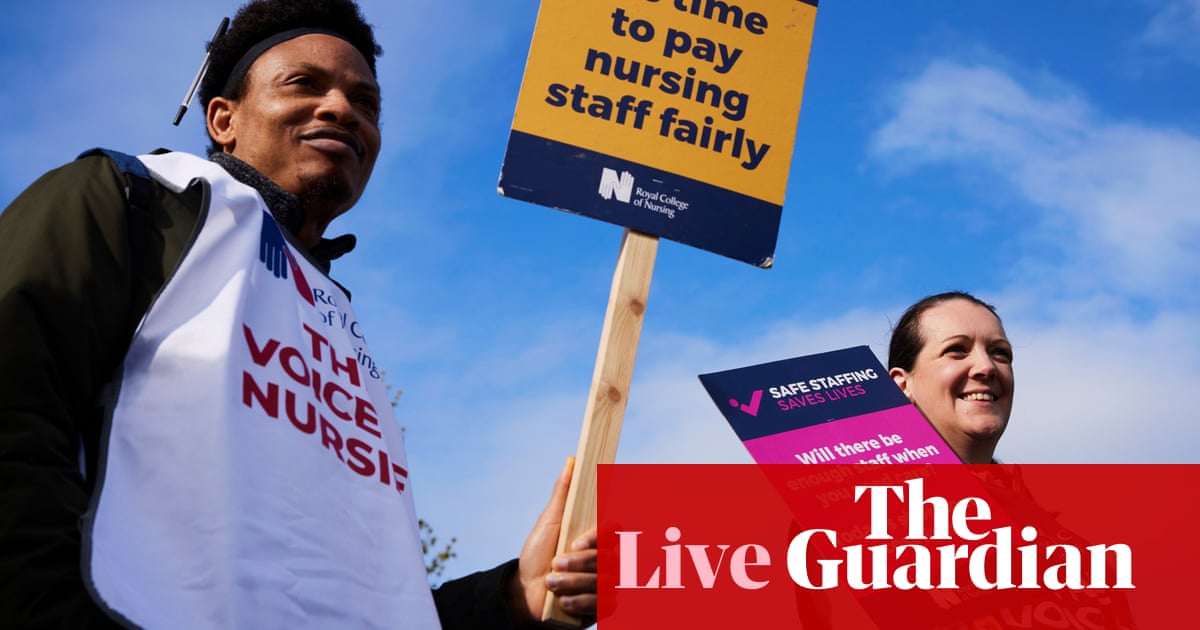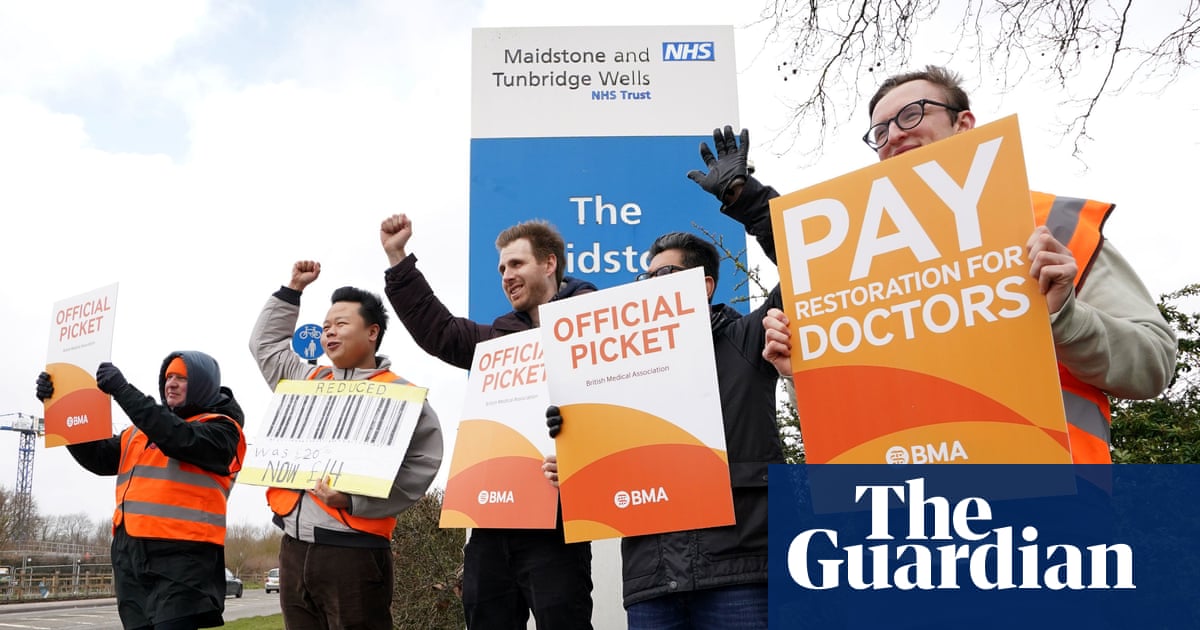
The NHS is set to get an inflation-busting 4% rise in its budget next year but health chiefs have said it may not allow them to cut waiting lists for another 18 months, the Guardian has learned.
The health service is on course to be one of the big winners in Rachel Reeves’s spending review on 30 October if it gets a proposed 4% real-terms uplift from the Treasury.
This could translate to a cash injection of about £7bn for the health budget in England, while other ministerial departments are facing much tougher settlements with some likely to have to cut capital spending.
Nevertheless, NHS chiefs are privately raising the alarm over the plans, saying the increased funding may not be enough to deliver Labour’s key pledge of cutting the huge care backlog and adding millions of extra appointments.
One Whitehall source said it would only allow them to “stand still” on waiting lists, rather than make progress with reducing them.
The insider said there was a landing zone of a 4% real-terms increase but it was expected to be eaten into significantly by NHS staff pay rises. NHS bosses in England also believe the service will be given a 4% real-terms increase in funding for 2025-26 – double the rate of inflation.
A Department of Health and Social Care (DHSC) source said pay discussions were still ongoing and there was no figure yet decided. They declined to comment on the spending review.
A multibillion-pound uplift for the NHS is likely to be hailed by the government as a significant step towards repairing the service after 14 years under the Conservatives. In the most recent budget settlement under the last government, the NHS got just a 0.2% real-terms rise.
But one senior NHS official said: “The danger is that the chancellor presents this as a ‘budget for the NHS’ when in reality it’s not really going to come close [to giving the service the money it needs]. The 2% that’s left after the pay deals are taken into account won’t be enough.”
They added that NHS chiefs would not publicly “be churlish about it as 4% is more than anyone was expecting and because of the wider state of the public finances”.
The Treasury has been seeking to fill a black hole in the public finances left by the Conservatives and is also having to find tax rises that generate more money, while fulfilling Reeves’s pledge at the party conference that there would be no return to austerity.
The government has also had to find money to resolve industrial action such as the strike by junior doctors (now known as resident doctors), which the Conservatives did not adequately budget for. Ministers have been hoping that ending the strikes will help get the NHS back to normal and start reducing the treatment and care backlog.
But Whitehall insiders said it was now clear that this was not sufficient to make significant inroads in clearing waiting lists.
A DHSC source said they had never assumed ending industrial actions would be enough.
“Partly it is more money, but we do think there can be change that comes with significant reforms around elective activity, changing the way we do operations and that things can be done more productively,” they said.
Thinktanks such as the Health Foundation have made clear to ministers that giving the NHS anything less than the 3.8% annual funding rises it has historically had would risk leaving Labour’s ambitions for the service undeliverable.
The Institute for Fiscal Studies had projected a 3.6% real-terms increase, which it said would be enough to implement the NHS workforce plan, but may not be enough to cover all the other promised improvements.
One health policy expert said: “A 4% real-terms increase is better than [NHS budget rises in] the recent past. But it’s at best touch-and-go in terms of delivering the manifesto commitment [of 2m more appointments a year].”
Once Reeves confirms exactly how much the NHS will get next year, Wes Streeting, the health secretary, will publish a detailed new plan setting out how hospitals will deliver the promised 40,000 extra weekly appointments.
Ministers are aware that polling shows that tackling long waits for care and getting the NHS working properly again is the public’s top priority.
Reeves is also expected to use her budget to hand health trusts more capital funding to spend on repairing the service’s increasingly threadbare infrastructure and to buy new equipment such as scanners.
The NHS Confederation, which represents trusts, says it needs an extra £6.4bn a year for that purpose in each of the next three years.
NHS sources say talks with the Treasury about increased capital have been positive and that ministers “get” the service’s need for extra funds, given the growing disruption to patient care from roofs that are at risk of falling down, equipment breaking down, floods and fires.
Nevertheless, Reeves appears to be resisting calls to also give the NHS an emergency cash injection for the current financial year, of £1bn to £1.5bn – an “in-year bailout” – to help tackle the backlog and reduce the risk of Labour facing an “NHS winter crisis” during its first months in power.
Matthew Taylor, the NHS Confederation’s chief executive, used an interview this week in the Health Service Journal (HSJ) to plead for extra funding to help hospitals cope with the huge extra demand the cold months bring.
He told ministers that voters would not understand if extra funding was handed to private hospitals, so they can treat more NHS patients awaiting planned care, rather than used to help the service itself cope with what is expected to be a tough winter.
“The problem with [that prospect] is if you have a crisis in urgent and emergency care, and you haven’t used the opportunity to put a bit more money in to help that crisis, then that would be a big call,” said Taylor, who was a key adviser to Tony Blair in No 10 in the 2000s. That would be a “big political choice” for ministers, he added.
A senior figure from one of the NHS’s biggest trusts said this week that hospitals were “anticipating an incredibly difficult winter”, the HSJ reported. There are widespread fears that a “tripledemic” of flu, Covid and RSV could overwhelm hospitals, which are already under intense pressure.












